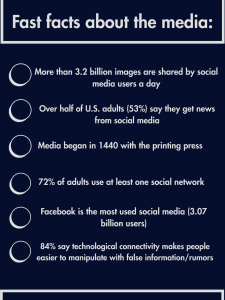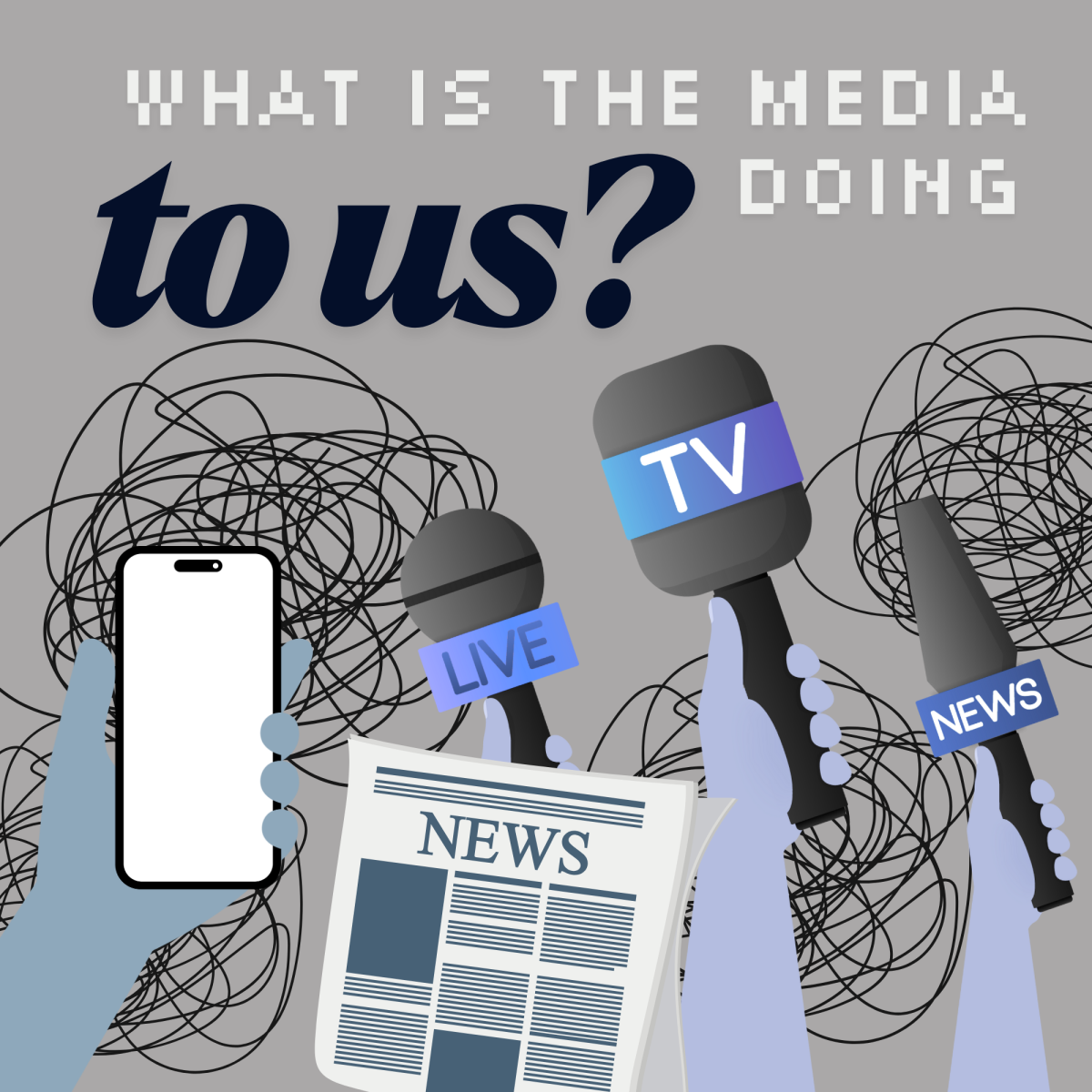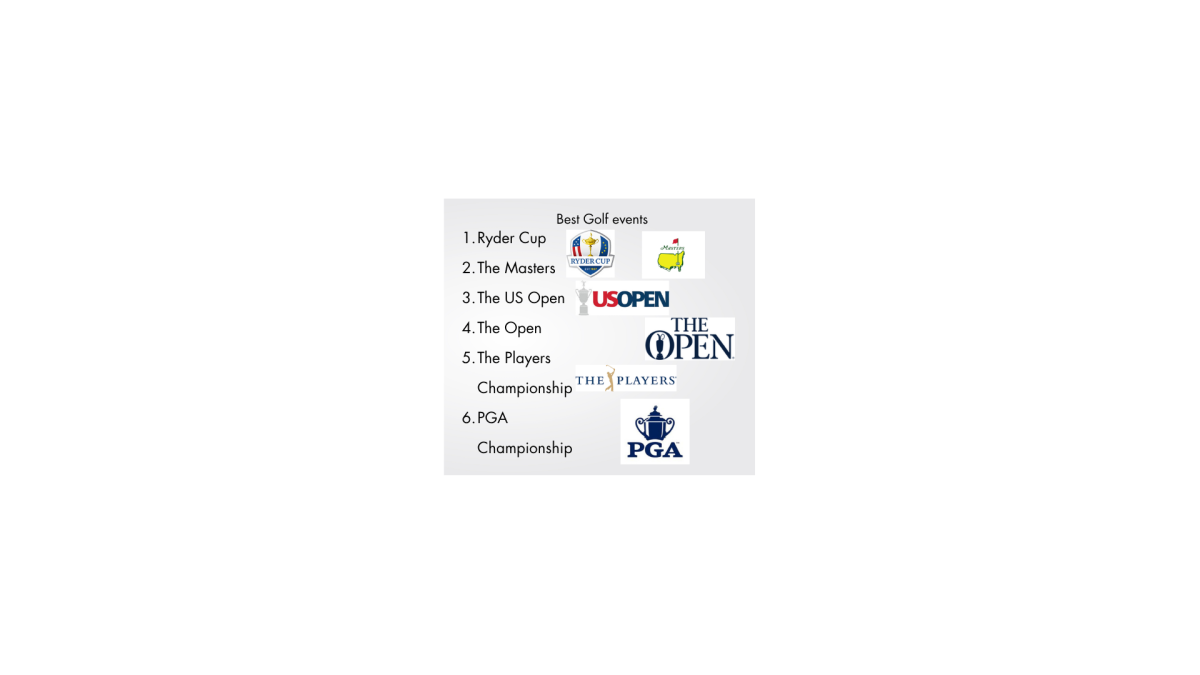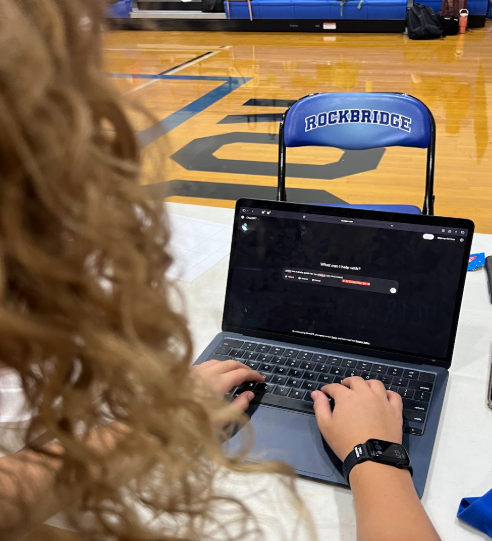Media–magazines, broadcasts, television, the internet. A loophole of scroll, repeat; watch, repeat; listen, repeat. An excellent source of information, a pastime and a means of escape.
Our society is reliant on the media. It is everywhere we go. From newspapers,
all the way to social media, the media constantly follows us, whether we know it or not.
Everyone knows about the individual negative effects of social media: an increase in one’s stress, comparison, sleep deprivation, and depression. However, the real question is, how is the media influencing our society as a whole?
Statista.com, a report-providing platform, states that, “American consumers spend around eight hours of their day with digital media.”
That is one-third of the entire day spent online.
Social media apps, such as Tiktok and Instagram, have not only changed our day-to-day schedules but have also completely reconditioned the way our brains work.
According to a study conducted by the National Library of Medicine, “95% of people aged 16 to 24 years old own a smartphone and check it on average every 12 minutes.”
We are in a state of living where we are constantly checking our devices for the small hit of dopamine it gives us; we are repeatedly multitasking, scrolling from one short video to the next, and destroying our attention spans.
In fact, the National Library of Medicine explains that from a neuroscientific perspective, these habits may “contribute to the fact that diagnosis of attention-deficit hyperactivity disorder (ADHD) is higher than it was 10 years ago.”
Binge-watching reels increases activity in the brain’s reward pathways, which is similar to addiction. Due to this, it makes it harder for us as a society to focus on more complex and engaging tasks.
The correlation between media and society is found within many real-world examples today.

Statistics from Pew Research Center
Because of increased dependency on the media, our relationships with one another are harmed. In this generation, many tend to prioritize online relations rather than real-life connections.
Additionally, social media can increase symptoms of jealousy and mistrust between partners.
As indicated in a PewResearch.org study, “51% [of partnered adults in the U.S.] say their partner is often or sometimes distracted by their cellphone while they are trying to have a conversation with them, and four-in-ten say they are at least sometimes bothered by the amount of time their partner spends on their mobile device.”
There are also incidents where not only society is affected by media, but media is impacted by society as well.
From Sept. 17 through Sept. 22, Jimmy Kimmel’s comedy show “Jimmy Kimmel Live!” was suspended by the Walt Disney Company, corporate parent of ABC. This was due to comments Kimmel made about the recent assassination of conservative activist Charlie Kirk.
Disney claimed that they “made the decision to suspend production on the show to avoid further inflaming a tense situation at an emotional moment for our country,” further explaining that they “felt some of the comments were ill-timed and thus insensitive.”
The occurrence displays the impactful relationship between the media and our society.
The media is not just a means of communication; it is a force that can change us as people. Now, when we look at what our society has become, we turn to the media to see how it has transformed us.








